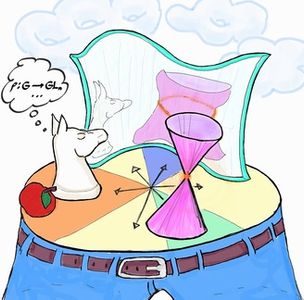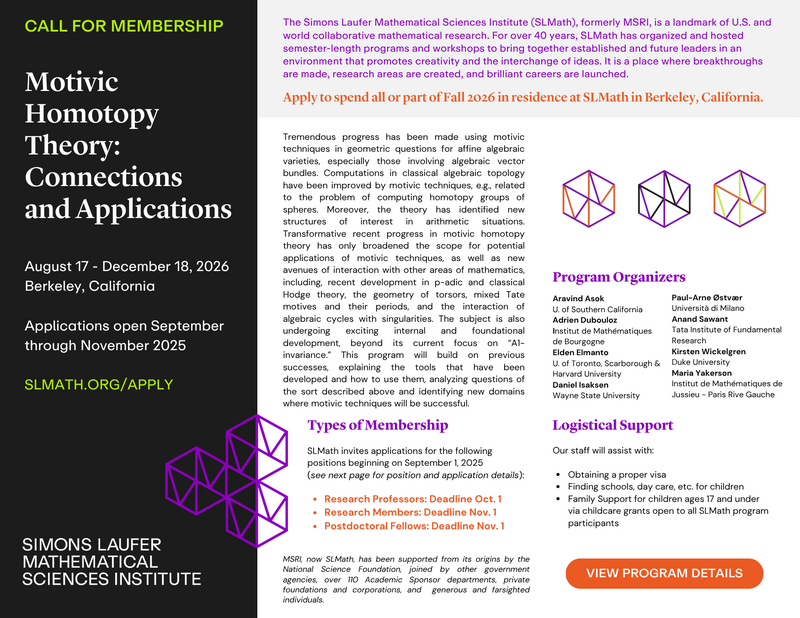Kinetic Theory: Novel Statistical, Stochastic and Analytical Methods
Date: 18 August - 19 December 2025
Location: Simons Laufer Mathematical Sciences Institute
Event type: Extended Format
Organisers: Laurent Desvillettes (Paris Cité), Irene M. Gamba (Austin), Francois Golse (École Polytechnique), Cyril Imbert (ENS), Pierre-Emmanuel Jabin (Penn State), Qin Li (Wisconsin-Madison), Chiara Saffirio (Basel), Weiran Sun (Simon Fraser), Lexing Ying (Stanford)
The focus of the proposed program is on so-called kinetic equations, describing the evolution of the of many-particle interacting systems. These models have the form of statistical flows, with their solutions being either a single or multiple point probability density functions or measures, supported in a space of attributes. The attributes are problem-dependent and can be molecular velocity, energy, opinion, wealth, and many others. The flow then predicts the evolution of the probability measure in time, position in space, and the interchanging of the particles’ states by the transition probability.
Probably the most classical kinetic equation is the Boltzmann equation which describes the evolutions of the phase-space density function for a dilute gas under binary molecular collisions. Other well-known classical kinetic models include the Landau equation, Vlasov equation for plasmas or other systems, Fokker-Planck equations or kinetic formulations of various macroscopic or hyperbolic systems.
In recent years, the successes of kinetic theory gave rise to an rapidly increasing variety of mathematical models beyond physics to applications in life sciences, social sciences, economy. Even more recently fascinating connections between kinetic theory and some aspects of data science have emerged.
Kinetic theory has strong and fascinating interactions with a large variety of other fields, including statistical mechanics, stochastic processes, dynamical systems…
The program will strive to give an overview of the novel mathematical tools used in kinetic theory through a broad range of classical and more recent applications.
Professor Eric Carlen (Rutgers) has been appointed as a Clay Senior Scholar to participate in this program
CMI Enhancement and Partnership program
Related events
See all events
Knotted Surfaces in Four-Manifolds
Park City Mathematics Institute

p-adic Kudla Program and p-adic Automorphic Forms
CIRM

Representation Theory Under the Influence of Quantum Field Theory
Simons Laufer Mathematical Sciences Institute

Motivic Homotopy Theory: Connections and Applications
Simons Laufer Mathematical Sciences Institute